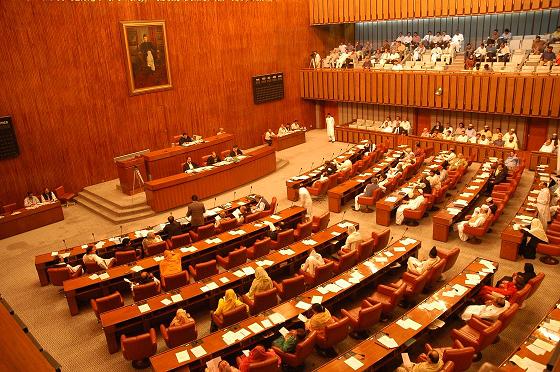ISLAMABAD: While proposing various amendments to the taxes and duties initially proposed by the government in the next budget, Senate’s Standing Committee on Finance has finalised proposals for Finance Bill-2018 here on Tuesday.
Among other proposals made by the government in the bill, the committee approved the major initiative under economic reforms, the exemption of income tax to income of up to Rs1.2 million per year.
During the meeting of the committee, led by its Chairman Farooq H Naek, the committee, however, rejected the proposals of increasing levy on petroleum products, tobacco and mobile phone sets. The committee also rejected the proposal of removing Gas Infrastructure Development Cess (GIDC).
With bad news for smokers, the committee, as per suggestion of ministry of health and Pakistan National Heart Association, has also approved an increase in taxes on the sale of cigarette. The officials of the ministry of health claimed that as per World Health Organization (WHO) the taxes on cigarettes should be at least 70 per cent, currently being charged at 45 per cent in Pakistan. The committee, however, rejected the proposal to remove the third-tier slab introduced in Federal Budget 2017-18, to curb the illicit cigarette trade.
Approving the income tax threshold proposed by the government, the committee suggested decreasing individual income tax threshold from 35 per cent to 25 per cent. The committee approved 10 per cent income tax on annual income between Rs1.2 million to Rs2.4 million. It also approved 15 per cent tax on annual income of Rs2.4 million to Rs4.8 million while 25 per cent tax on income of more Rs4.8 million annually.
“This is a populous measure and has no economic justification,” the committee chairman Farooq Hamid Naek observed. He was supported by senators from opposition parties.
After recommending slightly upward adjustments in tax slabs, Federal Board of Revenue (FBR) officials informed the committee that the upward revision will give a benefit of more than Rs20 billion in revenue in the next fiscal year.
It is estimated that the changes made in the tax rates will cause a revenue loss of Rs90 billion annually.
Former finance secretary Dr Waqar Masood, who was invited to assist the committee on the tax-related matters, said the slight changes made in the taxable slabs will help to some extent to save the revenue loss.
However, he said some correction has been made which will benefit the tax system.
Representatives on behalf of Federation of Pakistan Chamber of Commerce and Industries (FPCCI), cigarette manufacturers and Nestle Pakistan were specially invited to give their feedback on the budget proposals. The committee, however, rejected largely the proposals of these sectors for inclusion in the Senate recommendations.
Few senators, who are part of the committee and represent special businesses made their specific proposals, which relates directly to their business sailed through the committee successfully.
In the individual proposals, where some recommendations were made was raising the threshold level of exemption to $150,000 from $100,000. Below this level, the income tax department will not seek information regarding the source of income which was remitted to Pakistan.
The committee invited representatives of Sindh government and communication to review update on the Karachi circular train and green line bus scheme in Karachi. The committee observed to hold the meeting in the next 60 days.
The specific industries proposals were referred to FBR for review and FBR was requested to submit a report within 60 days to the committee.
During the meeting representatives of All Pakistan Textile Mills Association (APTMA) requested the committee to introduce regulatory duty on import of raw material which was subsequently approved by the Senate body.





So Senate has increased the tax slabs for salaried class. It was a good step by Govt to propose reduction in salaried class income tax rates and levy more tax on non-filers, but Senate seemed to have other priorities.
For salaried individuals earning more than 4.8 million a year (4 lacs per month), the tax rate is now 25%, instead of 15%. This is a massive increase.
NA should not approve the increased slabs for individuals as individuals are already bearing the burden of indirect taxes along with inflation